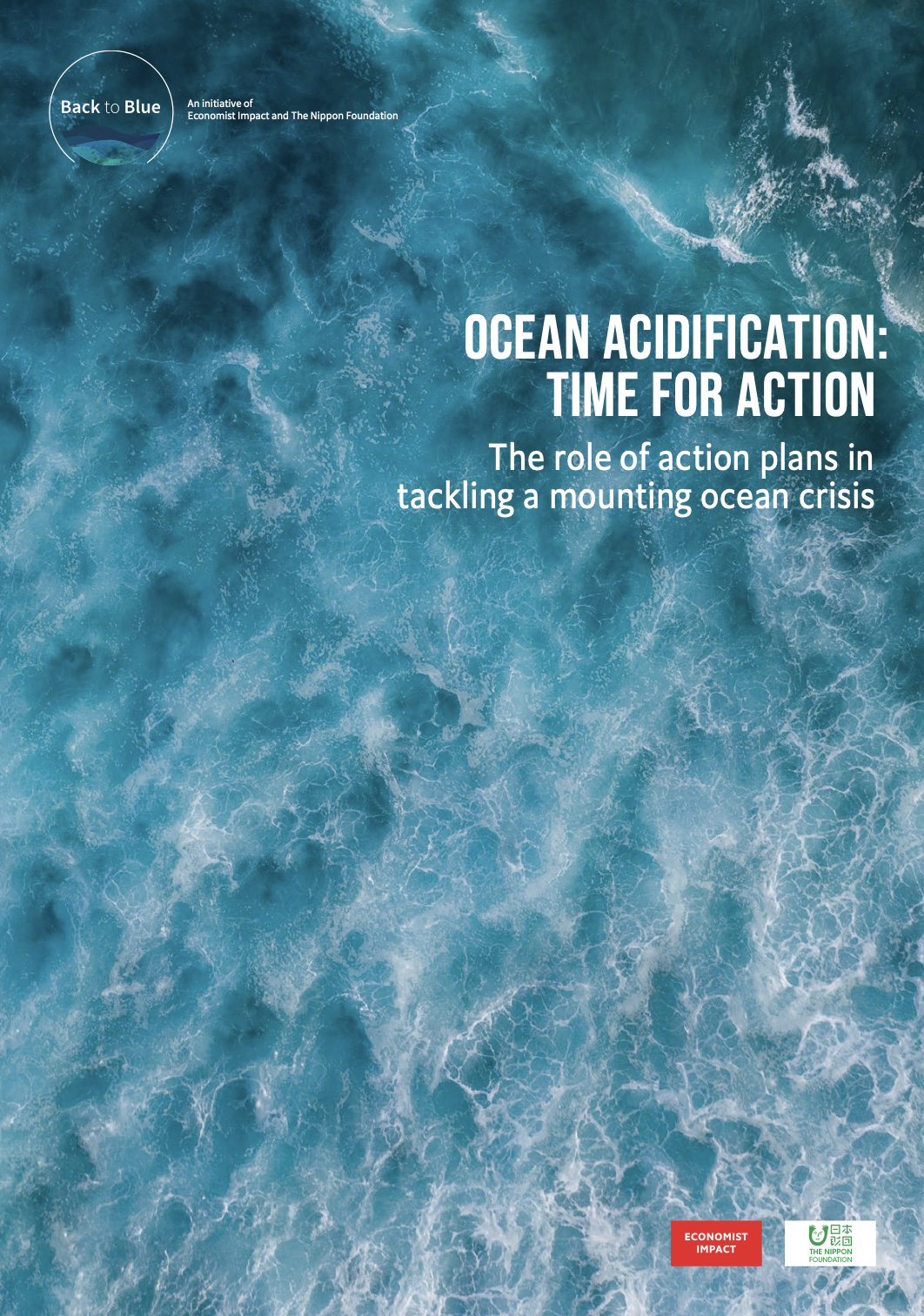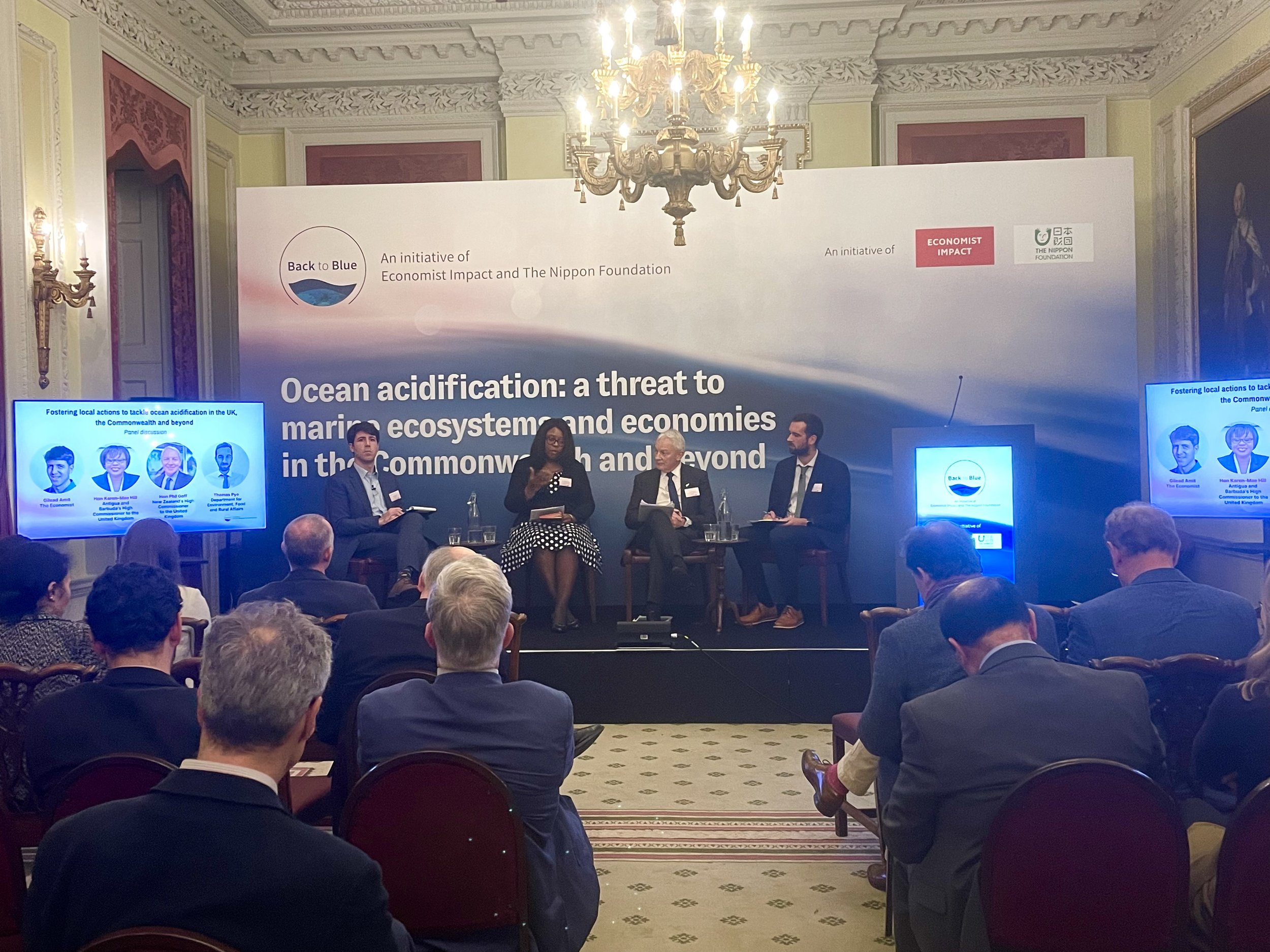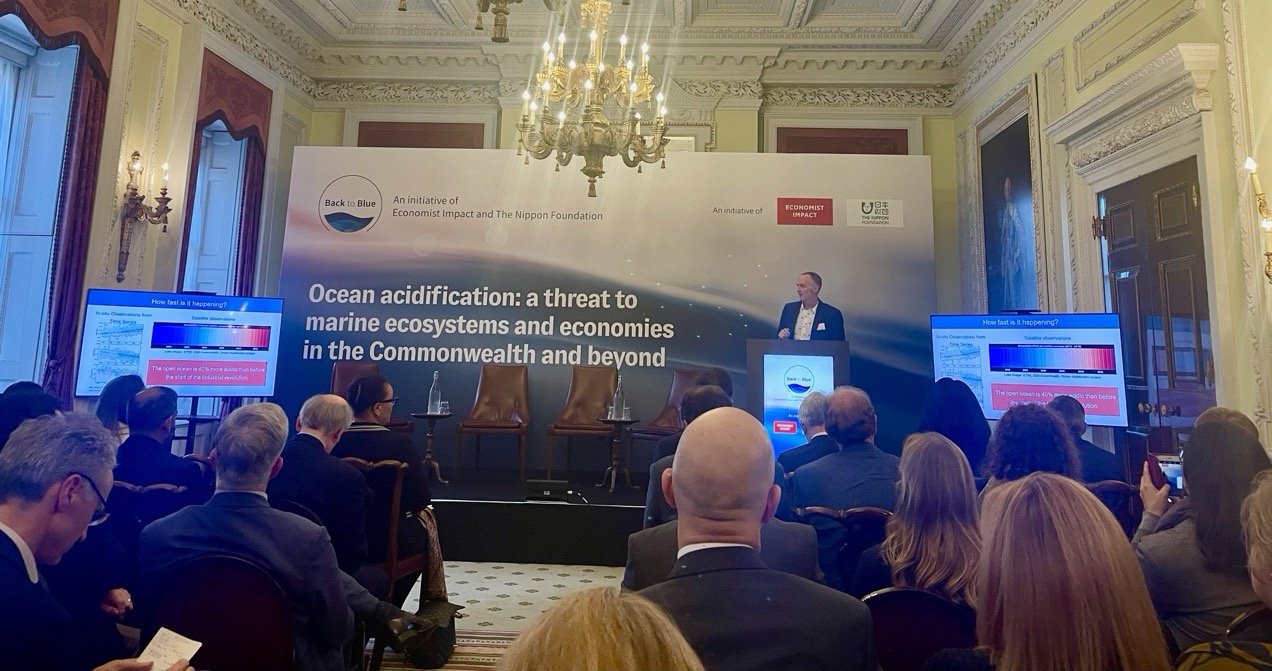Economist Launches Ocean acidification: a Time for Action, The Role of Action Plans in Tackling a Mounting Crisis
On 14 November at an event in London, The Economist Impact Group launched, “Ocean Acidification, A Time for Action: The role of action plans in tackling a mounting ocean crisis” a policy report calling on National Governments to rise to the challenge of developing National OA Action Plans.
The event was attended by government leaders across the Commonwealth including representatives from the United Kingdom, New Zealand, and Antigua and Barbuda.
The threat that OA poses to biodiversity, food chains and economies is an integral part of what the UN describes as an ocean emergency. It is the reason that the UN calls for action to combat OA as part of its Sustainable Development Goals (SDGs), particularly as captured in SDG 14.3.
While science and research about localized trends and potential impacts of OA on keystone species is growing, “turning OA science and information into action is on the cutting edge of policy development and management application. This is what governments are working to accomplish through OA action plans, and the OA Alliance is helping to share lessons learned and best practices,” said Ms. Jessie Turner, Director of the International Alliance to Combat Ocean Acidification, who spoke on a panel at the event. “Dedicating time and resources to this issue is a big challenge, but it must be done.”
Jessie Turner, Director of the OA Alliance, shares Panel 1: Ocean acidification action plans and policy framework: a global overview with Helen Findlay, Senior Scientist, Plymouth Marine Laboratory and Nicholas Hardman-Mountford, Head of Oceans and Natural Resources, The Commonwealth Secretariat.
National OA Action Plans –as called for and supported by the OA Alliance—allow governments to increase ambition for mitigating OA and actively address localized manifestations of OA, turning back the tide.
“OA action plans have the power to elevate the profile of OA and focus minds on addressing it,” says Steve Widdicombe, Director of Science at Plymouth Marine Laboratory (PML) in the UK and co-chair of the Global Ocean Acidification Observing Network (GOA-ON). “An action plan signifies that the government formally recognises OA as a critical environmental challenge. And a formal plan commits the government to taking concrete actions to combat OA and support those actions with appropriate resources.”
The OA Alliance was launched in 2016 by three state governments of California, Oregon, and Washington alongside the Province of British Columbia in Canada. These governments created the OA Alliance to share lessons learned from their response to some of the first observed impacts of ocean acidification on oyster hatchery production across the North American West Coast during the mid-2000s and call on other governments global to act. Lessons learned and recommendations are featured in the report, and include reflections on monitoring and research, reduction of land-based pollutions, adaptation and resilience building, awareness building, international collaboration and advocacy, timeline and funding and ownership of implementation.
Today, the OA Alliance is calling upon its national government members to develop and release OA Action Plans by the UN Ocean Conference occurring June 2025 in Nice, France. Meeting this milestone would renew ambition to deliver on Sustainable Development Goal 14.3, “to minimize and address ocean acidification” and help to prioritize research and funding needs across the UN Decade of Ocean Science.
“If countries wait until the evidence for localized OA impacts are commonplace before taking action,” said Mr. Masahiko Fujii, Professor of Atmosphere and Ocean Research Institute, University of Tokyo, “the likely scale, consequences and costs of those impacts on people’s lives and livelihoods will be considerably greater than if early action had been taken.”
Panel 2: Fostering local actions to tackle ocean acidification in the UK, the Commonwealth and beyond, with government representatives from Antigua and Barbuda, New Zealand and the UK
Steve Widdicombe, Director of Science, Plymouth Marine Laboratory provided an introduction ocean acidification and the science behind it.
Rt. Hon. Patricia Scotland KC, Secretary-General of The Commonwealth gave a powerful introduction to the event, encouraging us all to act now for the future of our planet and the new generations.






